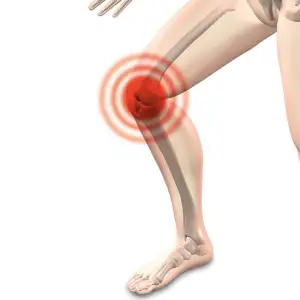Understanding the Risks and Realities of Self-Circumcision: A Health Guide

Self-circumcision, the act of cutting or removing the foreskin of the penis without medical supervision, is a practice that has been carried out for various reasons throughout history. While traditional circumcision is often performed by trained medical professionals in sterile environments, self-circumcision poses significant risks and complications due to lack of expertise and proper tools. It is crucial to understand the potential dangers associated with this procedure before considering it as an option.
Risks and Complications Associated with Self Circumcision
Self-circumcision poses significant risks and potential complications. Without proper medical training and equipment, individuals attempting self-circumcision may experience excessive bleeding, infection, nerve damage, and improper healing. Inadequate sterilization of tools can lead to severe infections, including tetanus and gangrene. The lack of anesthesia increases the risk of intense pain and psychological trauma. Additionally, improper technique can result in disfigurement or permanent damage to the genital area. It is crucial to understand these risks before considering such a procedure.
Importance of Seeking Professional Medical Help
It is crucial to emphasize the importance of seeking professional medical help when considering circumcision. Circumcision, whether performed for cultural, religious, or medical reasons, should be done by trained healthcare providers in a sterile environment to minimize risks and complications. Medical professionals have the expertise to ensure proper technique, use of anesthesia, and post-operative care, reducing the likelihood of infections, excessive bleeding, or other adverse outcomes. Seeking medical assistance also allows for thorough assessment of individual health factors that may impact the procedure's safety and success. Remember, your health and well-being are paramount when it comes to any surgical intervention like circumcision.
Cultural and Religious Perspectives on Circumcision
Circumcision holds significant cultural and religious importance in various communities around the world. In Judaism, circumcision is a fundamental part of the covenant between God and the Jewish people, symbolizing purity and obedience to divine commandments. In Islam, male circumcision is considered a religious duty and is practiced as a way to follow the example set by Prophet Muhammad. Other cultures also have their own traditions surrounding circumcision, often marking a rite of passage from boyhood to manhood. Understanding these perspectives can help individuals appreciate the significance of circumcision practices within different cultural and religious contexts.
Alternatives to Self Circumcision
When considering circumcision, it is crucial to explore alternatives to self-circumcision. One safe and recommended alternative is seeking the assistance of a trained healthcare professional, such as a urologist or a general practitioner. These medical professionals have the necessary expertise and experience to perform circumcisions safely and effectively, reducing the risk of complications that may arise from self-circumcision. Additionally, some religious or cultural communities offer resources and support for individuals seeking circumcision, providing a safe and culturally appropriate environment for the procedure. It is important to prioritize safety and seek out qualified professionals when considering circumcision to ensure optimal outcomes and minimize potential risks.
In conclusion, self-circumcision is a risky procedure that can lead to severe complications and long-term health issues. It is crucial to seek professional medical help from trained healthcare providers who can perform the procedure safely and effectively. Additionally, it is essential to understand the cultural and religious perspectives on circumcision and consider alternative options if necessary. To ensure safe circumcision practices, individuals should always consult with a healthcare professional before undergoing any procedure related to circumcision. Prioritizing safety and seeking proper medical guidance are key in maintaining good health outcomes for individuals considering circumcision.
Published: 16. 03. 2024
Category: Health



